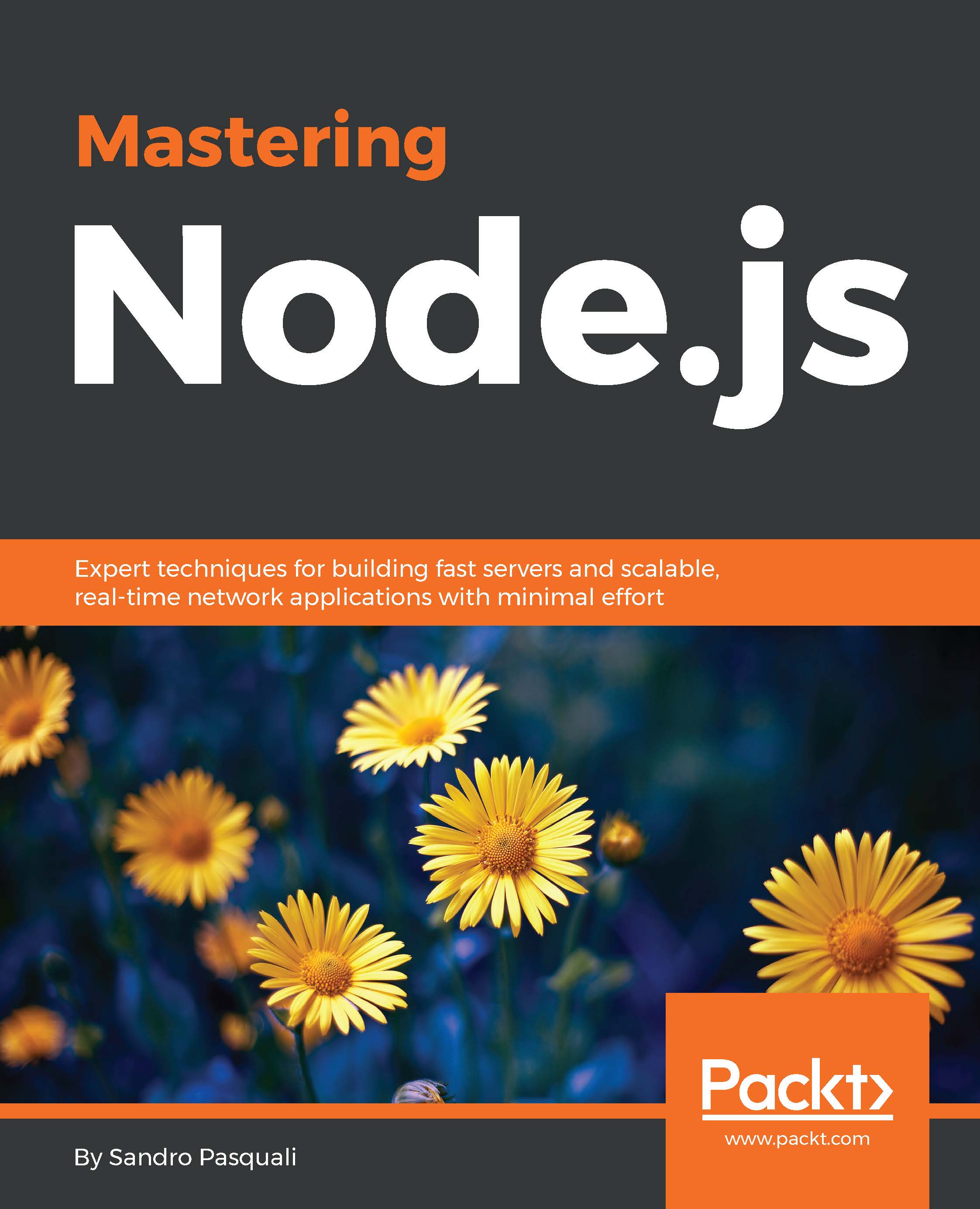-
Book Overview & Buying

-
Table Of Contents

Mastering Node.js
By :

Mastering Node.js
By:
Overview of this book
 Free Chapter
Free Chapter
 Sign In
Start Free Trial
Sign In
Start Free Trial

 Free Chapter
Free Chapter
"It is a very sad thing that nowadays there is so little useless information." | ||
| --Oscar Wilde | ||
The importance of I/O efficiency is not lost on those witnessing the rapidly increasing volume of data being produced within a growing number of applications. User-generated content (blogs, videos, tweets, posts) is becoming the premier type of internet content, and this trend has moved in tandem with the rise of social software, where mapping the intersections between content generates an exponential rise in yet another level of data.
A number of data silos, such as Google, Facebook, and hundreds of others, expose their data to the public through an API, often for free. These networks each gather astounding volumes of content, opinions, relationships, and so forth from their users, data further augmented by market research and various types of traffic and usage analysis. Most of these APIs are two-way, gathering and storing...

